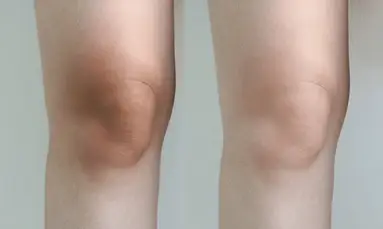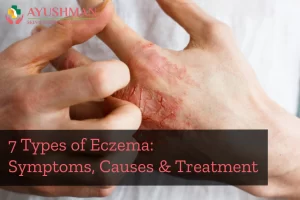Dark knees are a common issue in India but it is not something that you need to concern about. But if your dark knees bother you, don’t worry we have the best dark knee treatment in Dwarka. As a Rejuvenate Aesthetic Centre, we provide our patients best solution for any skin problems.
Do you know why your knees become dark? It happens when the skin makes or has excess melanin. You know melanin is a pigment that gives color to our skin. Dark knees are not harmful but some people want to lighten their knees.
In this article, we’ll cover all you need to know including the causes of dark knees and how to get rid of dark knees.
Table of Contents
ToggleWhat is the Pigmentation of the Knee?
This term refers to the presence of dark areas in the skin. When the color of your knee or any other skin area color is darker than normal skin color that means that area of your skin is pigmented. Pigmentation does not indicate the presence of any skin disease, while it is possible to identify pathological conditions that cause their appearance.
What are the Causes of Dark Knees?
Dark skin on the knees and other body parts is a common occurrence. It can affect all skin types, though the dark knee often occurs in people with darker skin tones. This is because darker skin is more probably to overproduce melanin.
Here are some main causes of dark knees:
Friction: One primary reason for dark knees is constant friction and pressure. The skin on the knees is thicker and subject to frequent rubbing against surfaces like clothing or the floor. This friction can lead to increased pigmentation and darkening over time.
Dry Skin: Dry skin is another common culprit. Lack of moisture can cause skin to become rough and patchy, contributing to the dark appearance of the knees. Regular moisturizing can help alleviate this issue.
Hyperpigmentation: Hyperpigmentation occurs when there’s an excess production of melanin, the pigment responsible for skin color. Factors like genetics, hormonal changes, or inflammation can trigger hyperpigmentation, leading to darker knees.
Sun Exposure: Just like other parts of the body, the skin on the knees can be affected by sun exposure. Prolonged exposure to the sun’s UV rays can lead to skin darkening. Using sunscreen on exposed areas can help prevent this.
Poor Circulation: In some cases, poor circulation may contribute to dark knees. Limited blood flow can affect skin health, and the knees may exhibit discoloration as a result. Regular exercise and maintaining a healthy lifestyle can aid in improving circulation.
Skin Conditions: Certain skin conditions, such as eczema or psoriasis, can affect the knees and lead to darkening. Managing these conditions with appropriate skincare routines and, if necessary, medical intervention can help minimize discoloration.
How Can You Prevent Dark Knees?
Most of us think that if we knew how to prevent black or dark knees, our knees would never turn black. Today we are sharing some tips to prevent darkness on your knees because the best way to treat black knees is to prevent them. Here are some preventions:
- Always avoid sun exposure.
- Always apply moisturizer.
- Never forget to wear broad-spectrum sunscreen of SPF 50 or higher.
Note: If you notice unusual melanin in your other body parts, talk with your healthcare provider immediately.
Treatments For Knee Pigmentation
Fractional Laser Treatment: This treatment involves the use of laser beams to create micro-injuries in the skin, stimulating collagen production and promoting skin renewal. Fractional lasers target specific areas and leave surrounding skin untouched which helps in fast healing.
Q-Switch: This is a laser treatment that is known for its ability to target pigmentation problems. It works by emitting short pulses of energy that break down melanin, the pigment responsible for dark skin. This laser treatment is particularly effective for treating hyperpigmentation and can result in a more uniform skin tone on the knees.
CO2 Laser Resurfacing: This treatment will give you long-lasting results. CO2 laser involves removing damaged skin layers, boosting collagen production, and revealing healthy, lighter skin underneath. While this treatment may require a longer recovery period, it can provide significant and long-lasting improvements.
Choosing the right dark knees laser treatment near me depends on various factors, including the severity of pigmentation, skin type, and individual preferences.
Note: Consultation with a dermatologist or skincare professional is crucial to determine the most suitable treatment for your specific needs.Why are Lasers so Impactful for Knee & Elbow Darkness Removal?
Lasers are impactful for knee darkness removal due to their precision and ability to target specific pigments and skin concerns. Here are common reasons behind the effectiveness of laser treatments for this purpose:
Target Pigment Reduction: Lasers can selectively target melanin, the pigment responsible for dark skin, without affecting the surrounding tissue. This targeted approach allows for precise treatment of pigmentation issues on the knees, minimizing the risk of damage to healthy skin.
Stimulates Collagen Production: Many dark knees laser treatment near me, such as fractional laser and CO2 laser resurfacing, induce controlled damage to the skin, triggering the body’s natural healing response. This includes the stimulation of collagen production, promoting the regeneration of healthier and lighter skin. This dual action addresses both pigmentation concerns and skin texture.
Versatility in Wavelengths: Different lasers emit specific wavelengths of light that target different skin concerns. For example, the Q-Switched Nd: YAG laser is effective in breaking down pigmentation, while the Alexandrite laser is known for its precision in targeting melanin. Dermatologists can choose the most appropriate laser based on the specific needs and conditions of the individual.
Long-Lasting Results: Laser treatments often provide long-lasting results compared to some topical creams or ointments. The stimulation of collagen and the targeted reduction of pigmentation contribute to sustained improvements in skin tone and texture over time.
If you are looking for medical treatment for dark knees or other pigmented areas then Ayushman Skin & Cosmetology is the best option for you. We have top-level technologies to turn your hope into reality. As a healthcare service provider, we believe in giving our clients the best. We also provide a range of Aesthetic Treatments in Dwarka such as Carbon Laser Facial, Surgical Scar, Removal Treatment, Laser Eyebrow Removal, Laser Hair Removal, and more.
FAQs
Q: Can I treat dark knees at home with over-the-counter products?
A: Mild cases may respond to over-the-counter products, but for effective and long-lasting results, consulting a dermatologist for professional treatments like laser is recommended.
Q: How does laser treatment work for dark knees?
A: Laser treatments target melanin or pigmentation in the skin, breaking it down or stimulating collagen production. This helps lighten the skin and improve its overall texture.
Q: Are laser treatments safe for dark knee removal?
A: Laser treatments are generally safe when performed by a qualified professional. It’s important to follow post-treatment care instructions and discuss any concerns with your dermatologist.
Q: How many sessions are typically required for laser treatment?
A: The number of sessions depends on the severity of pigmentation and the chosen laser. Multiple sessions are often needed, spaced several weeks apart, for optimal results.
Q: Is there downtime after laser treatment?
A: Downtime varies based on the type of laser used. Some treatments, like fractional laser therapy, have minimal downtime, while more aggressive options like CO2 laser resurfacing may require a longer recovery period.
Q: Can medical treatment for dark knees be combined with other procedures?
A: Dermatologists may recommend combining laser treatments with other procedures or skincare regimens to improve results. This could include chemical peels or topical treatments.
Q: How long do the results of dark knee laser treatments last?
A: Results can vary, but many people experience long-lasting improvements. Maintaining good skin care practices and sun protection can help prolong the effects.
Q: Can laser treatments be used for all skin types?
A: Certain lasers are more suitable for specific skin types. It’s crucial to consult with a dermatologist to determine the most appropriate treatment based on your skin type and concerns.




